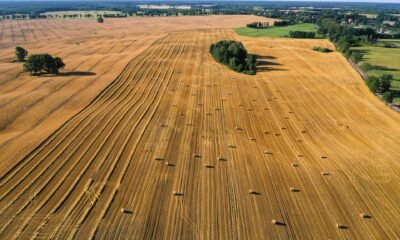Agriculture
Gujarat government orders companies to compensate farmers for “adulterated” seeds
Farmers from Prantij in Sabarkantha district, Gujarat have raised concerns about adulterated seeds of cabbage that may result in huge losses for them. As such, the state government has ordered the companies liable to pay compensation if the farmers suffer losses.
Ashwin Kotwal, an MLA from Khedbrahma constituency of Sabarkantha district, raised this issue in the Gujarat Assembly on Thursday. Kotwal pointed out that the farmers had sowed cabbage seeds of a private company in their farms. But they don’t see any ball formation in the plants. The MLA asked if the state government would compensate the farmers.
RC Faldu, Agriculture Minister, in a detailed reply, as per The Indian Express, stated that primarily it does not seem to be the case of adulterated seeds. He said the seeds in question are the NS-196 variety of cabbage, which is produced by Namdhari Seeds Private Limited. Faldu said the Gujarat farmers have made a cabbage plantation in 3937 hectare area in the state.
“Of those, NS-196 variety has been planted b 94 farmers in 105 hectare area. At Vadvasa, cabbage plantation has been done in 185 hectare area. Out of those, 33 farmers have done plantation of NS-196 variety of cabbage produced by Namdhari Seeds company in 61.5 hectare area. Out of those 33 farmers, 28 have complained that they don’t have hope of head (ball) formation in the plants,” the agriculture minister said.
Also Read: Amazon tells India “not to change” e-commerce foreign investment rules
Faldu highlighted that the state government has issued a show cause notice to the seeds producing company. He added that a team from the agriculture department also visited the farms of the 28 farmers for spot inspection. The minister said the primary finding of the visiting team is that there are no circumstances to say that the crop will fail. The team also stated that the head formation in the plants will begin in 15 to 20 days. Faldu said there is no evidence to say that the seeds are adulterated.
The minister said the state government had taken the seed producing company into a binding to compensate the farmers if the crop fails.








































